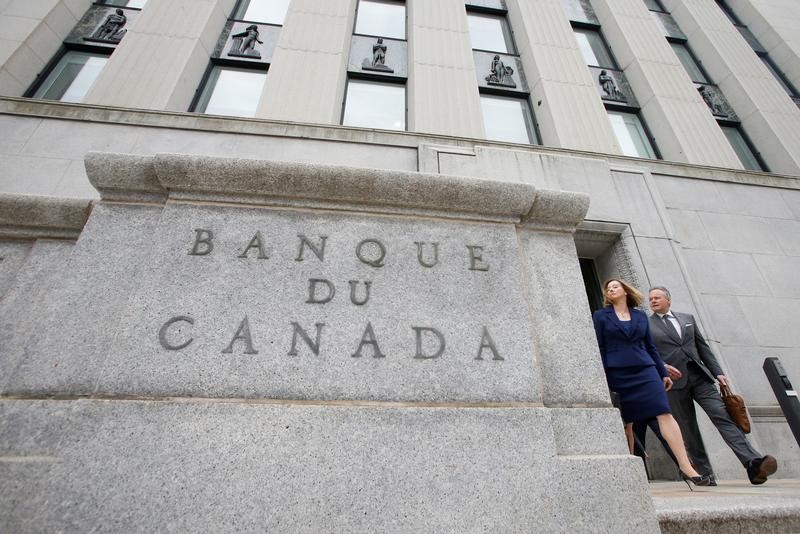By Steve Scherer and David Ljunggren
OTTAWA (Reuters) -The Bank of Canada on Tuesday said recent volatility in headline inflation is not unusual but the underlying trend shown by core measures was inconsistent with bringing inflation down to the 2% target.
Earlier on Tuesday, August inflation figures showed a jump in the headline number to 4.0% from 3.3% in July - higher than most analysts had forecast - on rising gasoline prices.
"Ups and downs of the size we've seen in the past couple of months are not that unusual," Deputy Governor Sharon Kozicki said in a speech at the University of Regina in Saskatchewan.
"(They) are one reason why we look at measures of core inflation - which exclude components with more volatile price movements - to get a sense of what underlying inflation is," she said.
One of those core measures, CPI-trim - which leaves out spiking mortgage interest costs - has been between 3.5% and 4% in recent months.
"Underlying inflation is still well above the level that would be consistent with achieving our target of 2% CPI inflation," Kozicki said.
After the August inflation data were released, money markets raised bets for a rate hike after the next policy meeting on Oct. 25, seeing a 42% chance of an increase compared with 23% before.
Inflation has exceeded the bank's 2% target for more than two years.
"One of the big drivers in inflation this month was coming from energy and gasoline costs. ... That's one of those pieces that can be pretty volatile," Kozicki said.
"It's going to take a lot of time to sort through how to interpret (the August) data, given everything that's going on underneath the data," she said.
Bank of Canada Governor Tiff Macklem on Sept 7 said interest rates may not be high enough to bring inflation back down to target even after 10 hikes of a total of 475 basis points since March of last year.
The Bank of Canada kept its key rate at 5% on Sept 6, noting that the economy had entered a period of weaker growth, but said it could hike again should price pressures persist.
Kozicki also said that while there is evidence that previous rate hikes are slowing demand, inflation remains too high, "and that tends to mean that real interest rates need to remain high."
